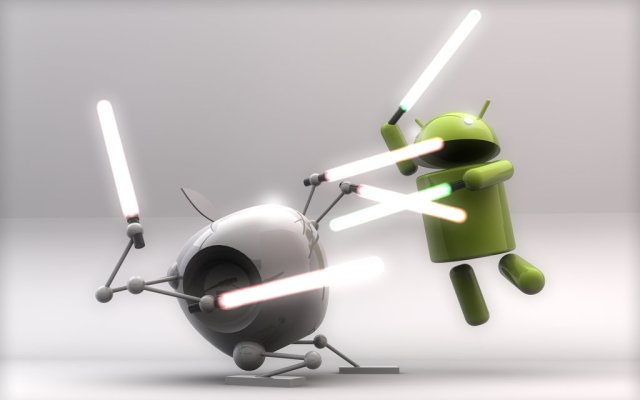Flashback to December 6, 2011: Google Chairman Eric Schmidt is on stage at LeWeb in Paris and is asked by an audience member why most application developers still choose to develop for iOS first rather than Android? Schmidt’s response:
“Six months from now you’ll say the opposite. Because ultimately applications vendors are driven by volume. And the volume is favored by the open approach that Google is taking.”
Well, Mr. Schmidt, it’s been six months. And? Nope.
No surprise here. As I wrote at the time:
Of course, my stance is going to be that there’s no way he’s going to be right about that. Not a chance.
Now, to be fair, support from some of the bigger app makers does seem to be improving. The audience member at LeWeb specifically cited Flipboard, which is now available on Android — sort of. It’s actually in private beta testing and only available for Samsung Galaxy S III devices, which no regular consumer actually has yet — and may not for a while. Still, other popular apps like Instagram and most recently, Instapaper, have made the jump to Android as well.
But that’s not what Schmidt said.
He predicted that by this date, developers would be making their apps for Android first. And that’s simply not happening. Sure, there are a few here and there that do it. But for the most part, the situation remains the same. In the hearts and minds of top app developers, it’s iOS first and Android second — or not at all.
The same is true for the vast majority of new startups — I talk with dozens each week. The refrain: iOS first. Android second. Down the road. At some point. Maybe.
So why was Schmidt so wrong? In my mind, there are a number of reasons — the same ones I went into in my initial post. The ability to make money is the most important. But the most interesting reason again ties into something Schmidt said back in December:
“With the ICS release our core objective as a company is to get all of the hardware vendors onto that platform.”
I mean, he really said that. And it’s unbelievable because it’s perhaps the most epic fail in the history of epic fails. Google’s “core objective as a company” was to get hardware vendors onto Ice Cream Sandwich (aka Android 4.0), and as of June 1 — seven months after the launch of the OS — 7.1 percent of Android phones are actually on it. Seven. Point. One. Percent.
That number isn’t from some bullshit survey of a few hundred devices or some propaganda from Apple — it’s the number published by Google itself. And it’s pathetic.
And it’s even worse when you consider the Google I/O is just around the corner once again, and it’s widely believed that Google will show off the next version of Android (aka “Jellybean”) at that time. In other words, Google will never come close to its “core objective” as stated by Schmidt. Or maybe they will. It’s possible — though perhaps still unlikely — that all of the hardware vendors will be using ICS by the time Android 6.0 comes out.
Coincidentally, it was almost exactly one year ago, during the last Google I/O, that Google went on and on about the “Android Update Initiative“. The plan was for Google to work with the OEMs and carriers to make sure that all Android updates were delivered in a timely manner.
Seven. Point. One. Percent.
We haven’t heard a peep about the grand “Android Update Initiative” in a year. One would hope we will at this year’s I/O — but sometimes it’s best to sweep such terrible face-plants under the rug and move on. We’ll see.
So a good part of Schmidt’s epic fail can be chalked up to Google’s incompetence in dealing with their OEM and carrier partners. Another (related) part is this. Because of the continued fragmentation of the Android ecosystem, developers who wish to reach the broadest range of the Android ecosystem need to test against hundreds of devices. That’s simply not tenable for most companies, let alone startups. Maybe Jellybean helps with that issue, but ICS clearly did not.
Also at play here is Schmidt’s reliance on the “volume” card. That is, the notion that because Google ships more phones overall than Apple does, developers would simply have to flock to Android. But since his comments, the situation has changed.
While Android is still the overall leader in smartphone marketshare, there are several key indications that the iPhone has significantly closed the gap — or perhaps even taken the lead in countries like the U.S. — in the past couple of quarters. Certainly, the actual sales numbers from the top carriers in the U.S. favor Apple. And this is the base that most app developers are still aiming for.
And then there’s the iPad, which also runs on Apple’s iOS software and continues to dominate the tablet market. In fact, the only Android tablet that seems to be of interest to anyone has nothing to do with Google — it’s made by Amazon. Of course, Amazon controls its own Android app marketplace as well, which has only further complicated Schmidt’s prediction.
So, sorry Mr. Schmidt. You failed hard in this prediction. But I think you still have a few weeks to go on the equally — let’s be kind and say “ambitious” — Google TV prediction.
[image via DroidForums]
